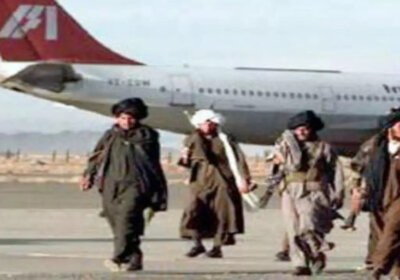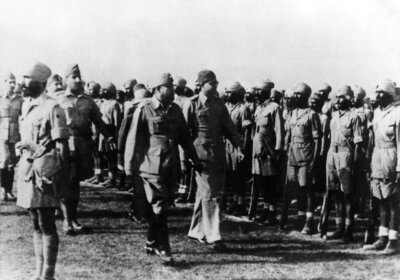The First World War is one of the most well-known wars in history; there are countless books, movies and even video games about it. Everybody remembers the story about Great Britain declaring war on Germany, Russia getting involved and the US joining late in the game. However, you may have never asked why this war took place in the first place. Although the causes of war are often simplified into a few main factors, the truth is that a complex series of events and decisions led up to the fighting.

Why did the world went to world war 1?
Events of world war 1
The First World War was a war fought between 1914 and 1918. It was fought between an alliance of nations called the Central Powers, led by Germany, Austria-Hungary and the Ottoman Empire, and the Allied Powers, led by Great Britain, France, Russia and Italy. The war began after the assassination of Archduke Franz Ferdinand in Sarajevo on June 28 1914. Austria-Hungary declared war on Serbia.
The first battle occurred at Tannenberg in East Prussia, where the Germans defeated Russian forces on August 26 1914. This was followed by an Anglo-French victory over German forces at Mons on August 23 1914. Then on October 28, 1914, British troops landed at Fao in China during a military campaign against Germany’s ally Japan.
On December 7 1915, Ottoman forces captured Basra from British forces during the Mesopotamian Campaign in Iraq. On May 24, 1916, German U-boats sank three American ships off the coast of Spain, killing 128 people, including one American citizen named Elbert Hubbard, who had no relation to anyone else aboard the ship but died anyway because he was born here and was, therefore, a citizen of America. On September 5 1916, German forces attacked the British town of Hull in England, killing 74 people, including 38 civilians and injuring over 160 others.
On March 19 1917, British troops launched an offensive against Turkish forces in Mesopotamia with limited success while also launching a second offensive against Ottoman forces at Gaza in Palestine on April 18 1917. On November 6 1918, Germany signed an armistice agreement with the Allied Powers ending World War One after signing an armistice with Russia on December 15, 1917, and another with the United States on November 11 1918.
As per the historians, the causes of world war 1 are many. It was a war that changed the world forever. The causes of World War I was complex and varied, with many factors contributing to its outbreak. The assassination of Archduke Franz Ferdinand, heir to the Austrian throne, by a Serbian nationalist in 1914 set off a chain reaction that led to war. World War I was one of the deadliest wars in human history, killing 17 million people in four years. Three major causes of World War I were the rise of nationalism, imperialism, and the spread of military alliances.
The rise in nationalism
The origins of the war stemmed from a desire on the part of Bosnia and Herzegovina’s Slavic population to no longer be under Austrian domination but rather to join Serbia.
Nationalism contributed to the war in two ways. First, it led directly to conflict when countries tried to gain more land and power by taking over other nations; second, nationalism spread throughout Europe and encouraged countries trying to prove their dominance or worthiness of power to join what became an extended global war.
Imperialism
It happens when one country increases its power and control over another by taking possession of a foreign territory. Before World War I, European countries competed to gain a foothold in Africa and Asia. Because of the resources available in these areas, increasing competition for territory led to an increased conflict that pushed the world into World War I. Some European countries had established colonies in Africa and Asia that provided a source of natural resources. Colonies were established in areas such as South Africa, India and Nigeria to harvest crops such as rubber and palm oil. The German East African colony was also located in this region.
Increase in military alliances
The reasons for the First World War are many and complex, but a major factor was the increased number of military alliances in Europe at the time. Countries had historically been hesitant to form alliances because they did not want to risk being drawn into armed conflict if another nation declared war on their ally. However, by 1914, many countries had entered into military alliances. When Austria-Hungary declared war on Serbia in 1914, it triggered a chain reaction that led to war between the other nations involved in these alliances. One of the most important alliances in Europe at the time was the Triple Entente between Britain, France and Russia. This alliance had been formed in 1907 as a way for these three countries to work together against Germany and Austria-Hungary if they ever went to war. The Triple Entente was a key factor in World War I because it ensured that when Austria-Hungary attacked Serbia in 1914, Britain would be drawn into the conflict on behalf of its French ally.
Assasination of Archduke Franz Ferdinand
The assassination of Archduke Franz Ferdinand, heir to the Austro-Hungarian throne, set in motion a series of events that led to World War I. On June 28, 1914, in Sarajevo, Bosnia and Herzegovina (then part of Austria-Hungary), a Serbian nationalist named Gavrilo Princip shot and killed Archduke Franz Ferdinand, heir to the throne of Austria-Hungary. The assassination occurred because Princip was angry at Austria-Hungary for oppressing Slavic people in Bosnia and Herzegovina. The event was used as an excuse for Austria-Hungary to declare war on Serbia, leading to Russia declaring war on Austro-Hungarian allies Germany and France.
Conclusion
In the end, the causes of World War I were complex and varied. Any explanation of the causes of this war has to account for these three main factors: the political rivalries between the great powers, nationalistic tensions arising due to imperialism, and territorial aggression stemming from a complex network of treaties. World War I was one of the first major paradigm shifts in warfare and international relations, seeing a variety of old systems failing in efforts to deal with new, destructive technologies.
For more such interesting knowledge stay tune to Panchayiti























Leave a Reply